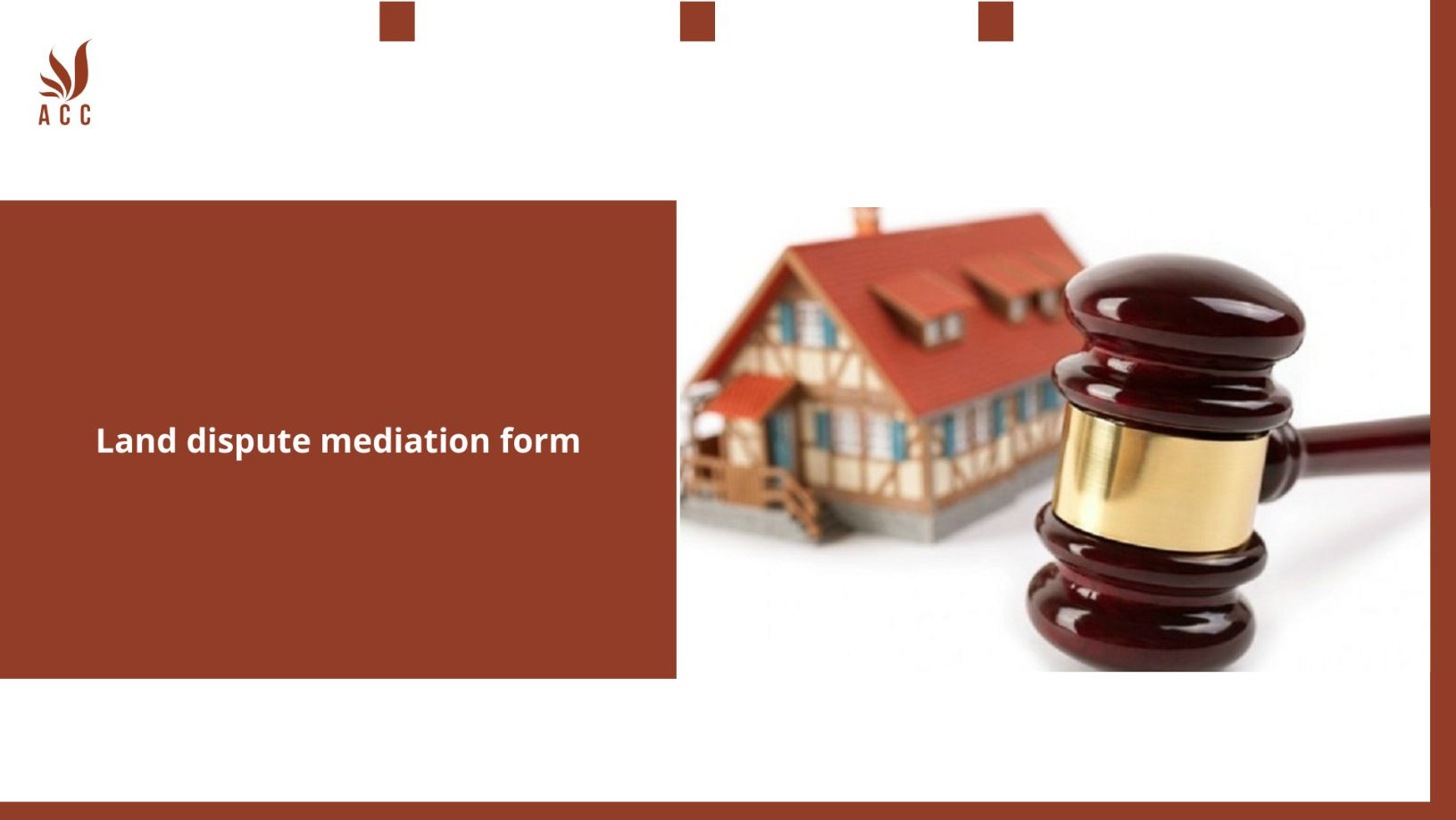I. Land dispute mediation form
Creating a land dispute mediation form is a detailed process that should be customized to suit the specific circumstances and requirements of the dispute. Here is a general template for a land dispute mediation form that can be adapted to your needs:

Land Dispute Mediation Form
Mediation Center/Agency: [Name of the Mediation Center or Agency] Mediator: [Name of the Mediator] Case Reference Number: [If applicable]
Parties to the Dispute:
Party 1 (Complainant):
- Name:
- Address:
- Phone:
- Email:
Party 2 (Respondent):
- Name:
- Address:
- Phone:
- Email:
Property Details:
Location of Disputed Property:
- Address:
- Legal Description:
Nature of Dispute:
- Please briefly describe the nature of the land dispute (e.g., boundary disagreement, easement issue, title dispute).
Mediation Process:
1. Agreement to Mediate: I, [Complainant's Name], and I, [Respondent's Name], hereby agree to participate in mediation to resolve the land dispute described above.
2. Mediation Session Details:
- Date and Time of First Mediation Session: [Specify]
- Location of Mediation Session: [Specify]
3. Mediation Guidelines: We, the parties, agree to abide by the following mediation guidelines:
- Each party will have the opportunity to present their case.
- The mediator will facilitate the discussion and may suggest possible solutions.
- Confidentiality will be maintained throughout the mediation process.
- Both parties commit to participating in good faith and working towards a mutually agreeable resolution.
4. Mediation Agreement: If a resolution is reached, the parties agree to sign a mediation agreement outlining the terms of the settlement.
Confidentiality Agreement:
I, [Complainant's Name], and I, [Respondent's Name], acknowledge that the mediation process is confidential. We agree not to disclose any information discussed during the mediation sessions to anyone except our respective legal advisors. This includes not sharing information with family members, friends, or other third parties.
Mediator's Role: The mediator, [Mediator's Name], will act as a neutral third party and facilitate the mediation process. The mediator will not provide legal advice or make decisions for the parties but will assist in finding a resolution.
Agreement: We, the undersigned parties, acknowledge that we have read and understood the contents of this form and agree to participate in mediation to resolve the land dispute in good faith.
- Complainant's Signature: _______________________ Date: ____________
- Respondent's Signature: _______________________ Date: ____________
Mediator's Statement:
I, [Mediator's Name], acknowledge that I will act as the mediator in this land dispute mediation process. I will facilitate communication between the parties, assist in exploring potential solutions, and work toward a resolution. I agree to maintain confidentiality as per the mediation guidelines.
- Mediator's Signature: _______________________ Date: ____________
Mediation Center/Agency Confirmation:
This section is for the mediation center or agency to acknowledge and confirm the initiation of the mediation process.
- Mediation Center/Agency Representative: ________________________
- Date: ____________
II. When using ACC Law Firm's land law, entrepreneurs will receive
III. Q&a
Q1: What is a land dispute mediation form, and what is its purpose?
A1: A land dispute mediation form is a legal document used to request mediation in a land dispute. Its purpose is to formally initiate the mediation process, allowing parties involved in the dispute to work together with a neutral mediator to reach a mutually agreeable resolution.
Q2: What information should be included in a land dispute mediation form?
A2: A land dispute mediation form typically includes the names and contact information of the parties involved, a brief description of the dispute, the desired outcome or resolution, and a request for mediation services. It may also include any relevant documents or evidence related to the dispute.
Q3: How does the mediation process work after submitting a land dispute mediation form?
A3: After submitting the form, a mediator will be appointed to facilitate the mediation process. The mediator will schedule meetings with the parties involved, provide a neutral space for discussions, and guide the conversation toward a potential resolution. The process is confidential and allows the parties to communicate openly and explore solutions.
Q4: What are the advantages of using mediation to resolve a land dispute?
A4: Mediation offers several advantages, including a quicker and less costly process compared to litigation, the opportunity for both parties to have a say in the outcome, and the potential to maintain or improve relationships between the disputing parties. It's generally a more amicable and cooperative way to address land disputes.
Nội dung bài viết:






Bình luận